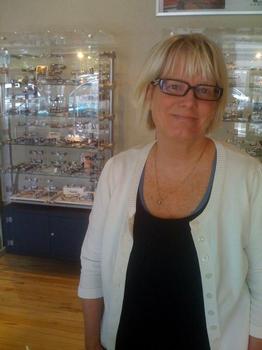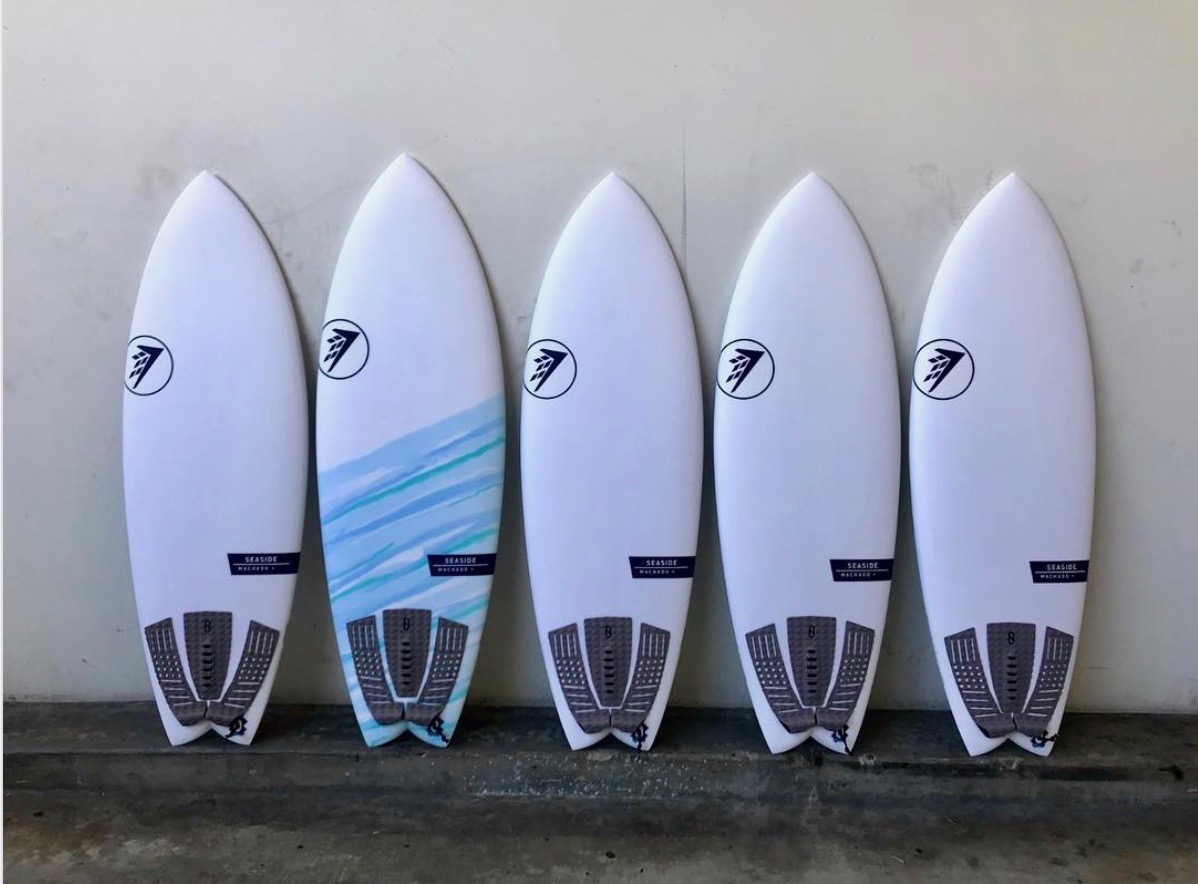How Sports Vision Bend is weathering the recession

While I was in Bend, Oregon, last week, I stopped in to visit Roberta Johnson, who owns the sunglass store Sports Vision Bend with her husband, Todd Johnson.
I last spoke with Roberta in October, right after the financial markets melted down. I remembered she made many interesting predictions at the time – that 2009 would be harder than 2008, that cash would be king and credit hard to come by, and that retailers better shake it up to survive. She also told me then that she was not going to carry goggles for the first time for the coming winter because she didn’t want to get caught with the inventory if the snow season was weak.
I met with Roberta Friday and we talked about how her predictions turned out, what strategies she is employing to weather the downturn, and how business has gone in the seven months since we last spoke.
Slow sales
Roberta said Christmas was brutal and the beginning of the year also was tough and weather was terrible. The first really busy day of the year when she was running all day and couldn’t sell glasses fast enough was July 5.
Although sales are down compared to last year, there’s more cash in the till because “kids don’t have any bandwidth on their credit cards. I don’t think mom does either,” she said.
She’s seen shoppers switch from buying $225 Oakley’s to $50 models. And, the real estate bust in Bend has led to fewer construction workers buying quality sunglasses at the store. Tourism is down as well.
Roberta said she looks back now on the recent boom years and wonders, “Why wasn’t I in a better mood when times were good? Why did I think it was hard then? I should have gone out to dinner more!”
Bold customers
The other new trend is that shoppers are constantly asking for discounts, even 16-year-old kids. People want her to match prices online or ask, “How much will you take for these?”
Roberta says she does not give discounts except for a two-week report card promotion she runs every year where she gives a 5 percent discount for every “A.”
When she explains her no-discounting philosophy, she uses the opportunity to educate shoppers about the importance of supporting local businesses, the value of the expertise her shop offers, that if the community does not support local businesses there will be no more small stores in town. She also tells them she will not put the sunglasses on sale two days later.
 “The important thing is to not be cranky,” she said. “It can verge on sounding cranky sometimes.”
“The important thing is to not be cranky,” she said. “It can verge on sounding cranky sometimes.”
Roberta took me outside and pointed to a sticker on her shop window: “Make local habit.”
“Retailers have not done a good job of explaining the importance of supporting local businesses,” she said. “We are not educating consumers enough, not telling them, ‘If you shop with me, then I’ll be here.’ I really think that what’s next (in retail).”
Goggles
I asked Roberta if she was glad she didn’t carry goggles this season.
“Oh God, yes,” she said. “That was a no brainer. The mountain (Mt. Bachelor) does a great job at goggles.” Since goggles are a preorder category, she’d rather let the experts handle that business than run the risk of making a bad buying decision or getting stuck with inventory if it’s a weak snow season.
Remodel
One reason why she was able to remodel a room in her store in June was because she didn’t buy goggles this year, she said.
 Roberta had the floors refinished, the walls painted, swapped out old Oakley cases with rivets for cleaner cases, and added a nice table with a leather chairs to service prescription customers.
Roberta had the floors refinished, the walls painted, swapped out old Oakley cases with rivets for cleaner cases, and added a nice table with a leather chairs to service prescription customers.
Originally, she had her eye on a $1,500 table for the room. Given the economy, she opted for a $150 one from Ikea. She was also got a good deal on the work and had crews work at night after the store closed, something that laborers were unwilling to do during the construction boom.
“I did it on a dime,” she said. The room looks brighter and modern and full of light. “I’m gearing up for when it comes back.”
Her advice for other retailers? “Paint your store,” she said. “It’s cheap and makes you feel so much better.”
(At right: The remodeled room.)
Vendors
There have been a few surprises with vendors during the downturn, Roberta said.
She said many are getting harder to work with because they won’t rotate slow-moving stock, are nitpicking about taking back defective glasses, or requiring her to buy two if she sends back one.
Also, she’s surprised she hasn’t heard directly from more upper levels of management. “You’d think they’d want to know, ‘Is the patient still breathing?’ she said. “Even a simple email: ‘How are you?’ would be nice.”
Her advice to executives: Call a retailer you don’t know and ask how they are.
Roberta doesn’t even see sales reps much because they don’t have the money to travel, she said.
Future
Downtown Bend, once filled with upscale boutiques and restaurants during the boom years, has several empty storefronts these days.
But Roberta believes she’ll make it through.
“I’m still going to be here,” she said. “I can feel it.”
She has renegotiated prices with all her suppliers and vendors, from her tax accountant to her landlord. And, she’s working her sales floor more to reduce payroll and to be more in tune with the mood of customers and what they want. “It’s too tight – you can’t make buying mistakes,” she said.
Sports Vision Bend continues to build its prescription business, which Roberta sees as a big growth opportunity.
“(Prescription glasses) are a need, not a want,” she said.
Since so many of Roberta’s predictions came true the last time we talked, I asked her how she’s feeling about 2010.
“I say, ‘hold,’ ” she said. “It’s not over.”



![MIKE WEST THE DAILY 2[49]](https://shop-eat-surf.com/wp-content/uploads/2024/04/MIKE-WEST-THE-DAILY-249-600x400.jpeg)






